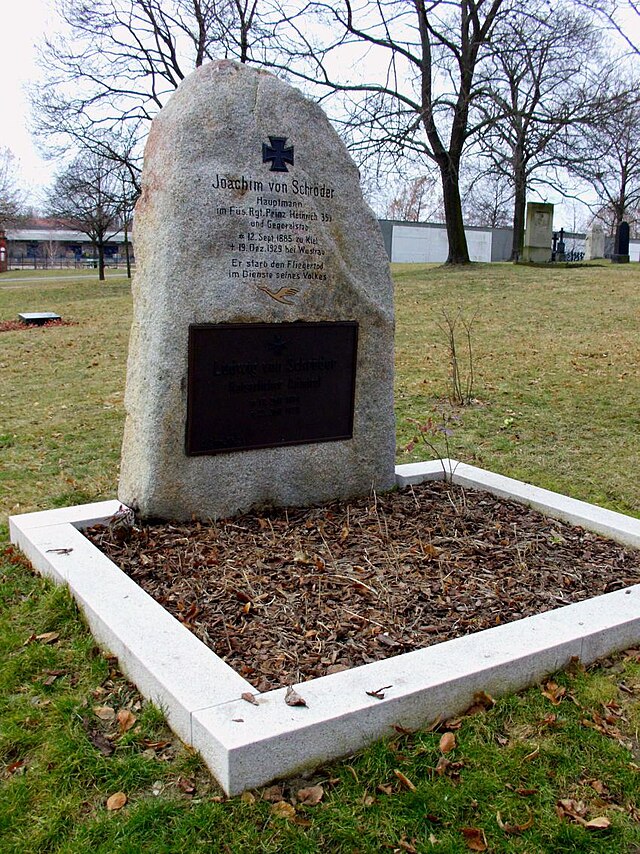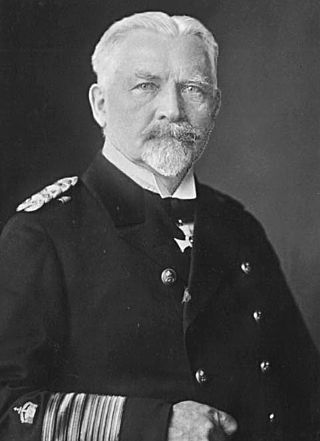Top Qs
Timeline
Chat
Perspective
Ludwig von Schröder
German admiral (1854–1933) From Wikipedia, the free encyclopedia
Remove ads
Ludwig von Schröder (17 July 1854 Hintzenkamp near Eggesin – 23 July 1933 in Berlin-Halensee) was an Imperial German Navy officer and Admiral during the First World War and a recipient of the Pour le Mérite with Oak Leaves.

Remove ads
Biography
Summarize
Perspective
Schröder entered the new Imperial Naval Service in May 1871 as cadet after passing his examinations. He was assigned for eight months to the sail training ship SMS Niobe before being posted to Naval School Kiel. After graduation he was initially assigned as subaltern to naval infantry, followed by service on several ships, then as commanding officer of the aviso SMS Blitz, the training vessel SMS Moltke and the cruiser SMS Vineta. With his promotion to admiral in January 1911 he functioned as chief of the Cruiser Division of the West Indies Station. In February 1912 Schröder was elevated to the hereditary Prussian nobility by Kaiser Wilhelm II. Admiral Ludwig von Schröder retired from active duty in 1913. One of his final assignments was commander of Baltic Sea Naval Command.[1]
With the outbreak of war in August 1914, Schröder was recalled to active service and named commanding Admiral in Flanders, placed in charge of both the Flanders U-boat flotillas and the 1st Marine Division. By mid-November 1914 additional naval infantry formations were raised and added to his command to form Marinekorps Flandern. He was in command during the 1916 Battle of Dover Strait, the successful German attack on the Dover Barrage. Schröder's leadership earned him the sobriquet "Lion of Flanders" in Germany.[2]
After transfer to the Baltic near the end of the war, Schröder was ordered by Wilhelm II to take action against navy mutineers at Kiel. The government of Reichskanzler Max von Baden was opposed to these measures and the orders were thus not carried out. Ludwig von Schröder retired a second time on 12 December 1918. He died in Berlin-Halensee on 23 July 1933, age 79, and was buried at the Invalidenfriedhof cemetery, Berlin, with son Joachim (1885-1929) who preceded him in death. His son Ludwig Karl (1884-1941) was a Luftwaffe general during the Second World War.
Remove ads
Awards
- Albert Order
- Iron Cross 1st and 2nd Class
- Pour le Mérite (20 October 1915) with Oak Leaves (23 December 1917)
- Bavarian Military Merit Order
- Order of the Crown
- Order of the Red Eagle
Bibliography
External links
Wikiwand - on
Seamless Wikipedia browsing. On steroids.
Remove ads

